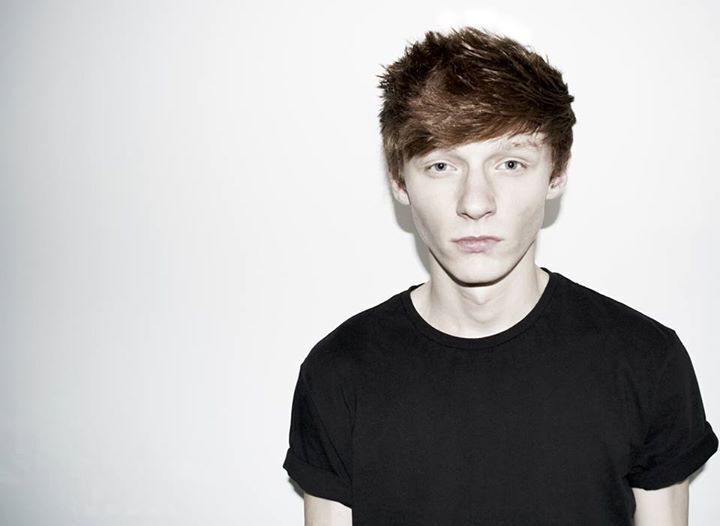
Bradley James – Remixes 101
At just 20 years old, Staffordshire based DJ and producer Bradley James has already reached some outstanding feats, that only a few can dream of at his age. Kicking off his musical path with a top-notch single by the name of ‘Charger’, Bradley James followed up with a string of stellar releases, including: ‘Visionary EP’, ‘Groseille Remix’, ‘Caiman’, ‘Amnesia / Taipan’, ‘Lynch’, ‘Infinity’, ‘Breakthrough’, ‘Fire’ and his latest banger ‘Akula’.
Bradley James had a sizzling start to his career, managing to sign a deal with Matchbox Recordings and getting heard on BBC Introducing within his first year in business and he’s now continuing his ascension at a fast pace. Whilst Bradley is continuously busy working on new exciting projects, we had a chance to talk to him about how he approaches remixes, in light of his recent wonder ‘Groseille Remix’.
Hi Bradley, thanks for taking the time to talk to us. How are you and what are you up to at the moment?
I’m great right now, happy to be finally getting some of the music that I’ve been working on for months out there, which I’m really excited about! Currently, I’m working on a tonne of new music, and hopefully soon I’ll be doing some gigs.
How do you go about working on remixes in general?
I think it really depends on the original track, what elements are available to use and what genre and style I want to produce. Usually, if a track has a vocal, I’ll start with that and play around with some chords or a bass-line, but a lot of the time, it works out quite well to use a melody from the original, but use a completely different style of synth – for example, using a lead melody that was originally from a high-pitched synth, and using the same melody in a much lower, grittier synth. For me, remix work is a lot different from working on an original piece, as a lot of the elements used will already be there.
What inspires you when working on remixes?
With any song, I want to produce something that is intended to work well in clubs and on dance floors, so you have to imagine yourself in a club and hearing this on the dance floor and deciding whether you’re going to go nuts for it or not. It also depends on the style and emotion of the original track because if the original is well-known for having a lot of energy, you have to make sure you pass that energy onto your remix.
How long do you usually take to complete a remix?
It really depends – as with any track. If I get into a groove and I have an exact idea in my head, then I can be working on it until early hours of the morning and get a lot of the main elements sorted, but then there’s remixes that just seems to take weeks and weeks of work to perfect.
What are the main differences you observe when working on a remix compared to an original?
The starting point is a lot different on a remix, as you will already have a melody, some chords, a bass-line and maybe a vocal to work with, so I will move straight into working on the lead synth so it brings something different to what the original already brings. On the other hand, when I start working on an original, I tend to just load up a synth with a basic analog oscillator and work on the melody of the track.
When dealing with a remix, do you think about the elements you’ll be using from the original first or do you start by gathering ideas for your own twist?
Personally, I like to work out what elements from the original I really like and want to use, then add my own sounds and twists to it. If there’s a vocal in the original, I tend to start from there, along with the lead melody from the original.
What makes a great remix in your opinion?
For me, it has to be the perfect balance between the original and a remix. I hear a lot of remixes that sound more like bootlegs because the only element of the original that has been used is the vocal and all of the other elements of the remix are completely new. I also think it’s best to avoid increasing the tempo by too much, as a lot of well-known vocals sound horrible when played at twice the speed they were recorded at and also tend to make the lyrics unclear and sound almost mumbled.
You have recently released a stunning remix of Solberjum’s ‘Groseille’. Tell us more about that.
The Groseille remix was something I worked on purely because I love the original and I thought it would sound great in a more Future House style vibe. I love the lead synth in the chorus of that remix, as it’s quite a basic sound, but works really well in my opinion.
Why did you choose to work on this song?
I was listening to Housesession’s Spotify playlist in my car and the original version came on and it was stuck in my head for weeks afterwards, so I kept on listening to it and before I knew it, I was playing around with the melody and some different sounds.
Following ‘Groseille Remix’, do you have any more remixes in the pipeline?
None at the moment, as I’m putting a lot of time and focus on getting a tonne of original tracks finished and released, but hopefully in the new year, there will be some tracks that I get an urge to remix as I really enjoyed working on Groseille!
Anything you’d like to add or shout outs?
I would like to thank Solberjum and Housesession Records for supporting and releasing my first ever remix!
Thanks Bradley!









